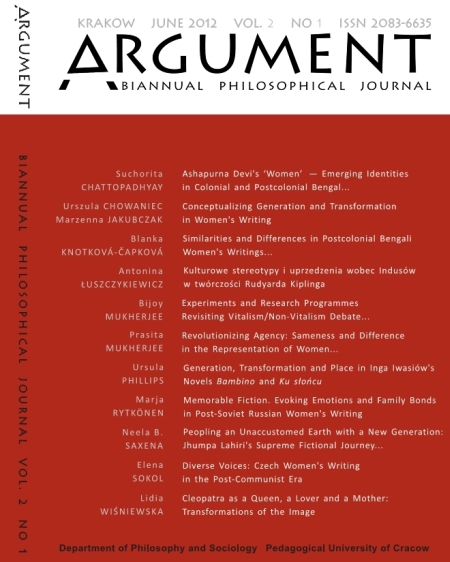Ashapurna Devi’s “Women” – Emerging Identities in Colonial and Postcolonial Bengal
Keywords:
Ashapurna Devi, Bengali literature, identity, postcolonial studies, subaltern studiesAbstract
Ashapurna Devi, a prominent Bengali woman novelist (1909-1995) focused on women’s creativity and enlightenment during the colonial and postcolonial period in Bengal, India. She herself displayed immense will power, tenacity and an indomitable spirit which enabled her to eke out a prominent place for herself in the world of creative writing. Her life spanned both colonial India and independent India and these diverse experiences shaped her mind and persona and helped her to portray the emerging face of the enlightened Bengali middle-class woman. Her writings trace the evolution of the Bengali woman as an enlightened and empowered individual struggling against the shackles of discriminatory norms imposed upon her by society. She traces the extremely conservative upbringing that the female members of her generation were subjected to and goes on to show how different individuals responded to these structures in different ways. Some would comply unquestioningly, some would comply simply because they did not dare to protest, while others would break free and find their own niche in the outside world. These issues are addressed by Ashapurna Devi in many short stories as well, but a critical analysis of her trilogy Pratham Pratisruti (1964), Subarnalata (1967) and Bokulkatha (1974) enables us to experience this struggle against a gradually unfolding backdrop where India moves on from being a British colony to an independent country. The trilogy traces the life of three generations of a family — Satyabati, Subarna and finally Bokul and establishes Ashapurna Devi as a path-breaking champion of women’s emancipation in an era when such endeavours were few and far between.


